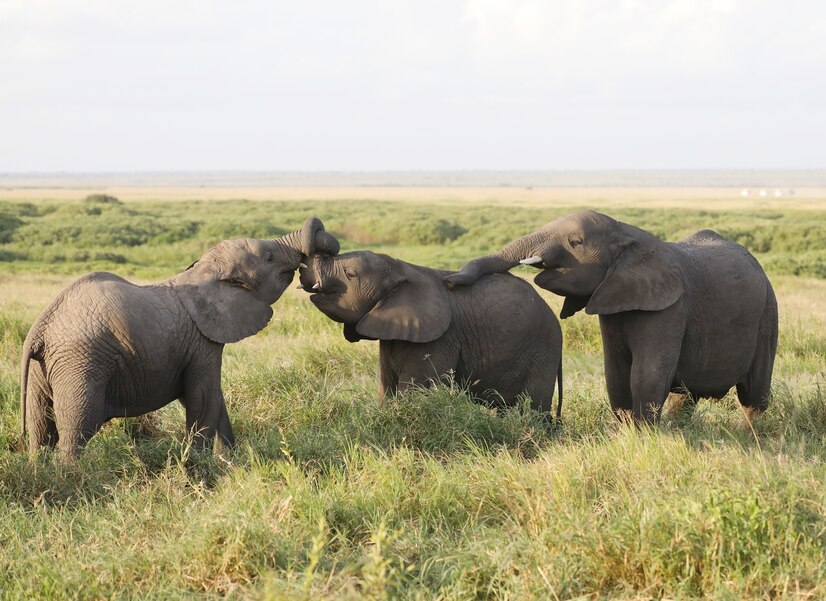A herd of more than 150 elephants, including several juveniles, has made its way into Zambia’s Mosi-oa-Tunya National Park from neighboring Zimbabwe, prompting a warning from wildlife officials due to the heightened protective instincts of the animals. The migration, confirmed last week by Wilfred Moonga, the Senior Wildlife Warden for Zambia’s Department of National Parks and Wildlife (DNPW), is a seasonal event, though it has occurred earlier than usual in the past two years.
Moonga highlighted that the herd includes calves as young as one week old, which makes the mothers especially vigilant and defensive. “The presence of such young calves makes the herd more vigilant and potentially aggressive toward any perceived threats,” he said in a statement to ZNBC News. The migration is not an unusual event for the region, typically taking place later in the dry season. However, recent patterns suggest that environmental or ecological factors may be influencing the timing of the migration.
Wildlife officials are urging motorists to remain cautious, especially along the stretch of road between the Radisson Blu Hotel and the Dry Manzi picnic area, which lies within an active wildlife corridor. “We strongly advise road users to be vigilant and give the elephants the right of way to prevent any dangerous encounters,” Moonga added.
Mosi-oa-Tunya National Park, which is a UNESCO World Heritage site, is home to a rich array of wildlife, including elephants, buffalo, and antelope. The park, which borders the Zambezi River and Victoria Falls, plays a critical role in the conservation of these species. As development begins to encroach on traditional wildlife migration routes, conservationists stress the importance of maintaining peaceful coexistence between humans and wildlife.
Authorities continue to monitor the herd’s movements closely, ensuring the safety of both the elephants and the public. Residents and tourists visiting the park are also encouraged to stay alert and respect the natural rhythms of the wildlife, recognizing the delicate balance that must be preserved for future generations.






